Politics, emotions and polls are closely intertwined. Politicians of parties vying for seats in the upcoming parliamentary elections are trying to reach potential voters through all available channels. They are, of course, also using social media for this purpose.
Emotions in tweets by leaders of political groups (anger and trust)
One of the channels that politicians use to convey their opinions, but also the substantive elements of their election programs, is Twitter. Individual posts on the Twitter accounts of the following politicians were analyzed for the period April 11 to May 10, 2023:
- Adrian Zandberg,
- Szymon Hołownia,
- Mateusz Morawiecki,
- Zbigniew Ziobro,
- Władysław Kosiniak – Kamysz,
- Robert Winnicki,
- Donald Tusk.
It was investigated what emotions they were and how they might be perceived by Twitter users. The analysis involved measuring the intensity of selected emotions of anger and trust. Individual analysis results were published periodically on our accounts: Twitter and Facebook.
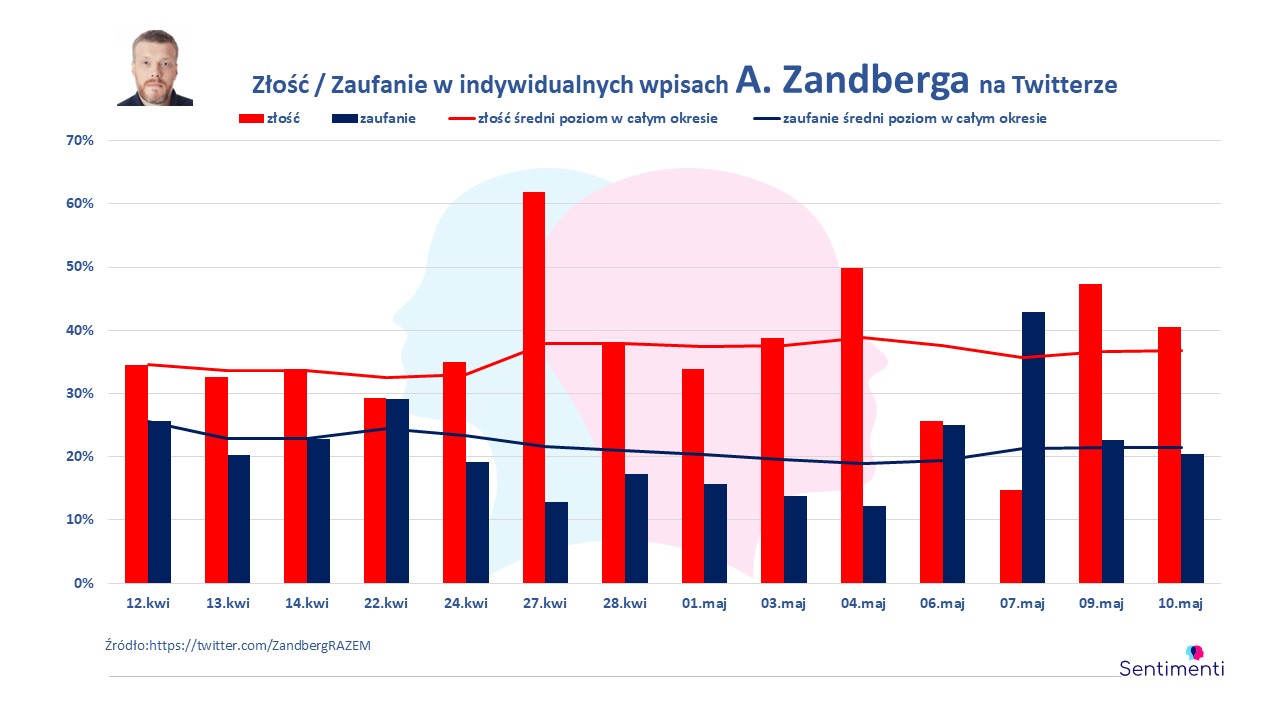
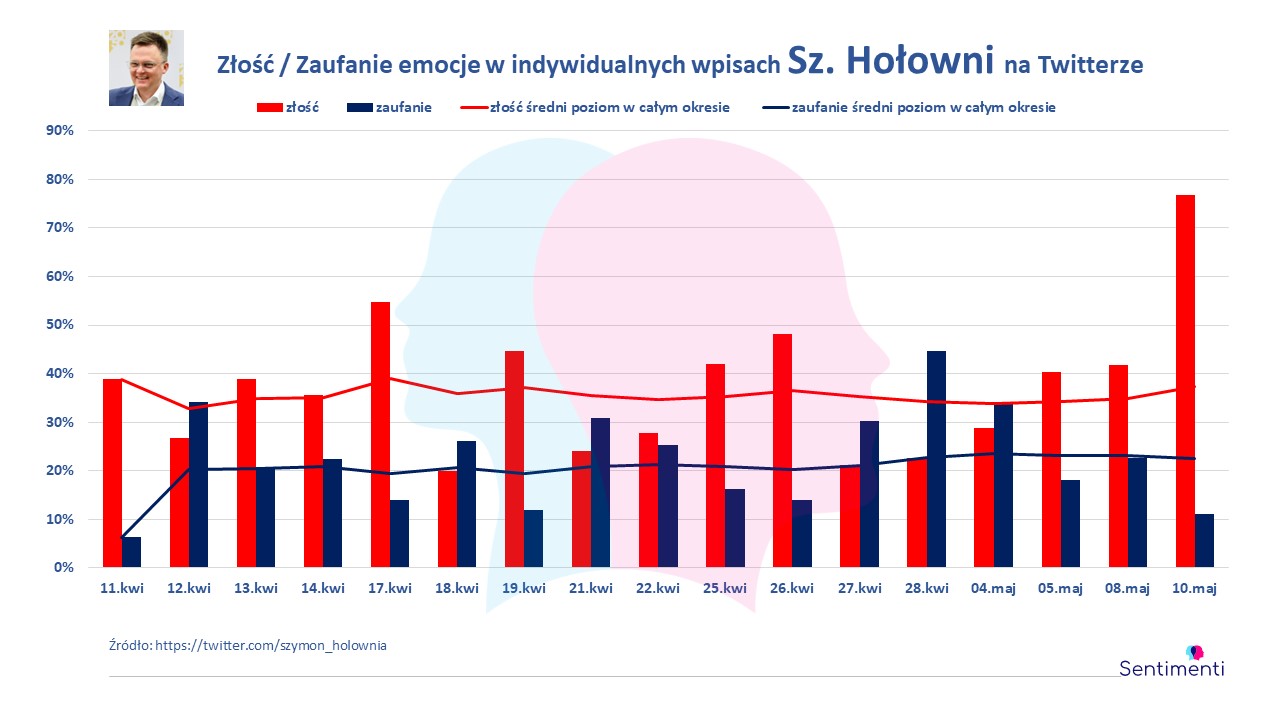
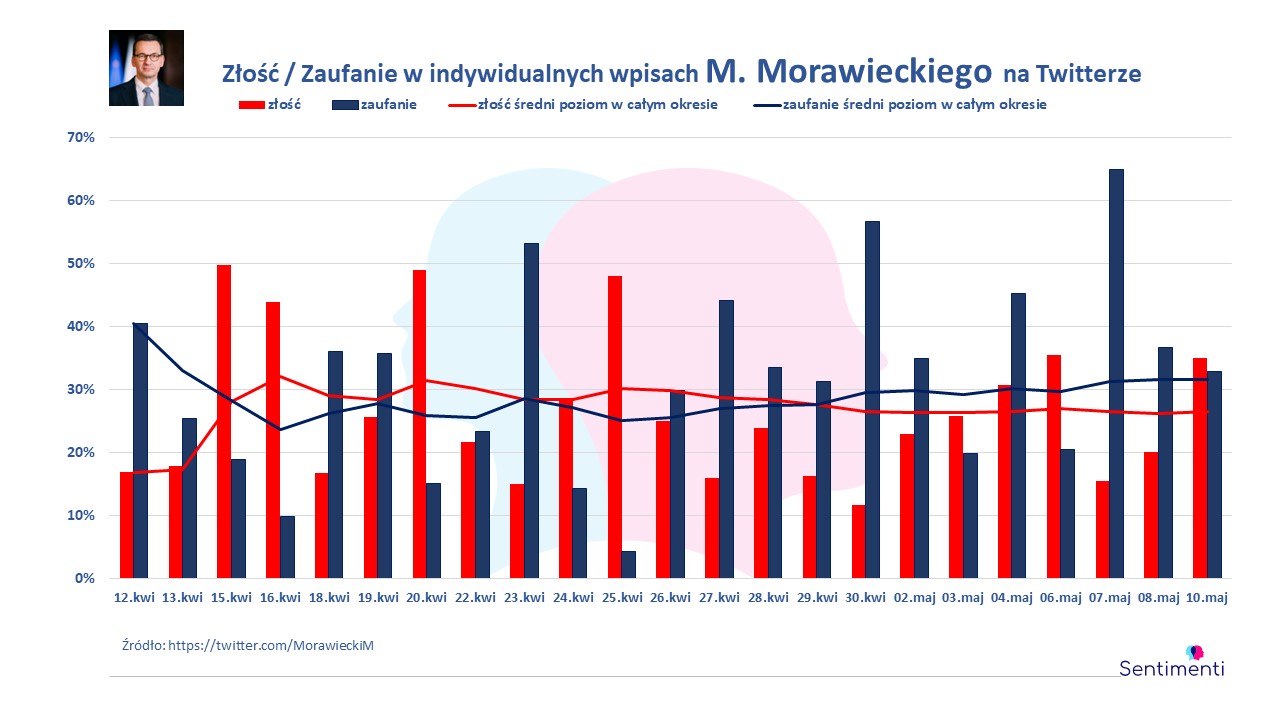
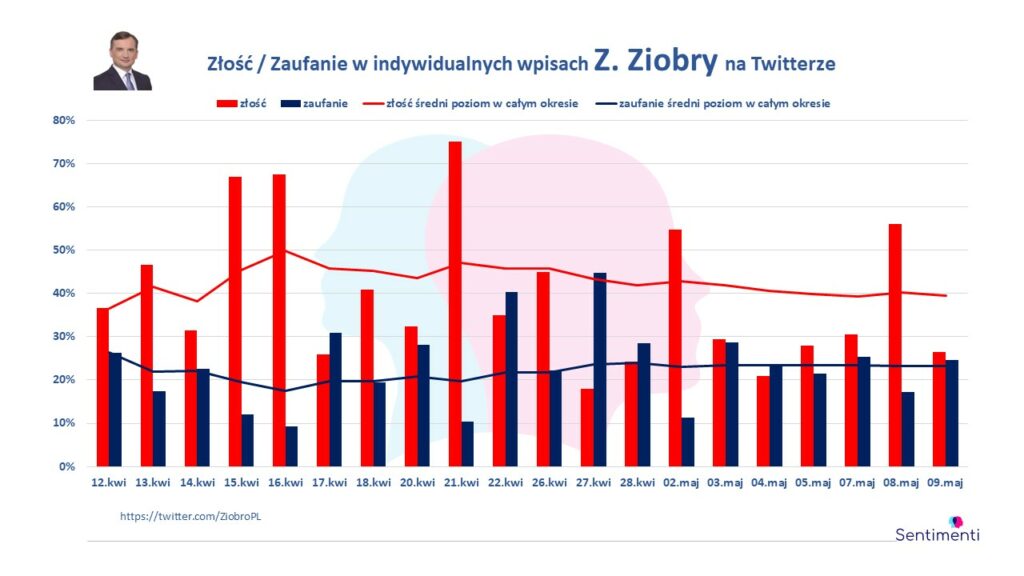
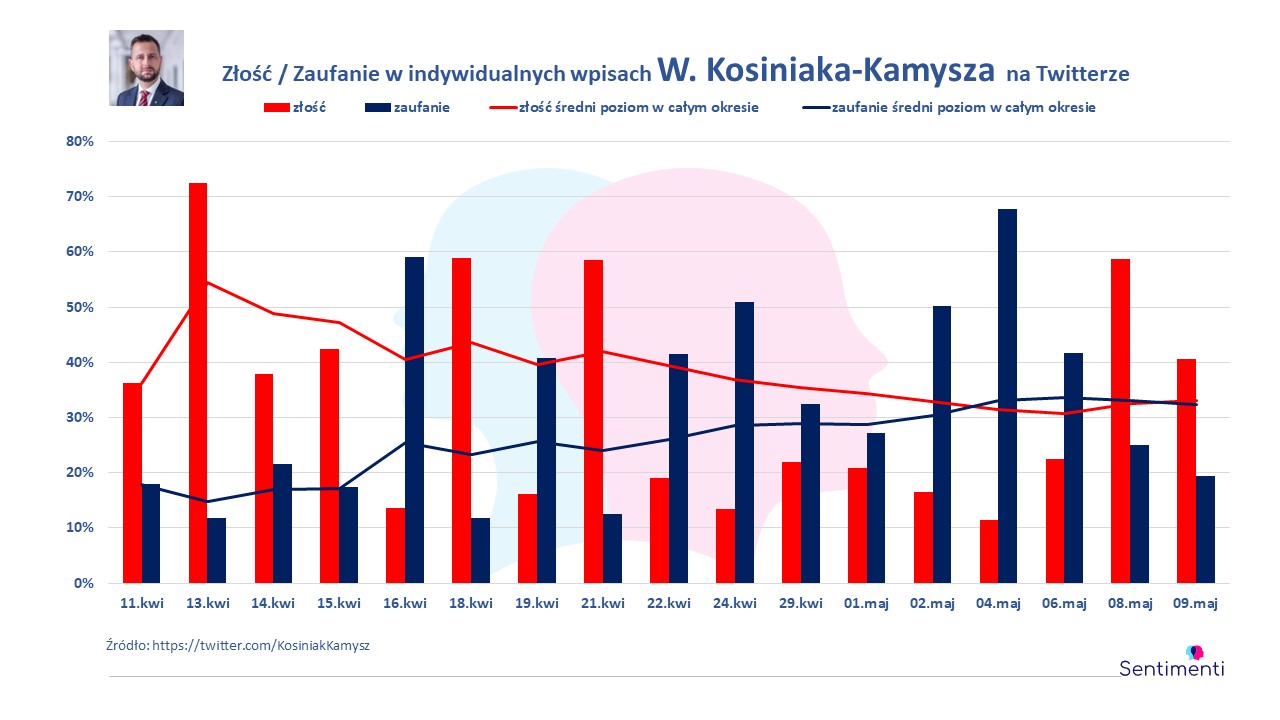
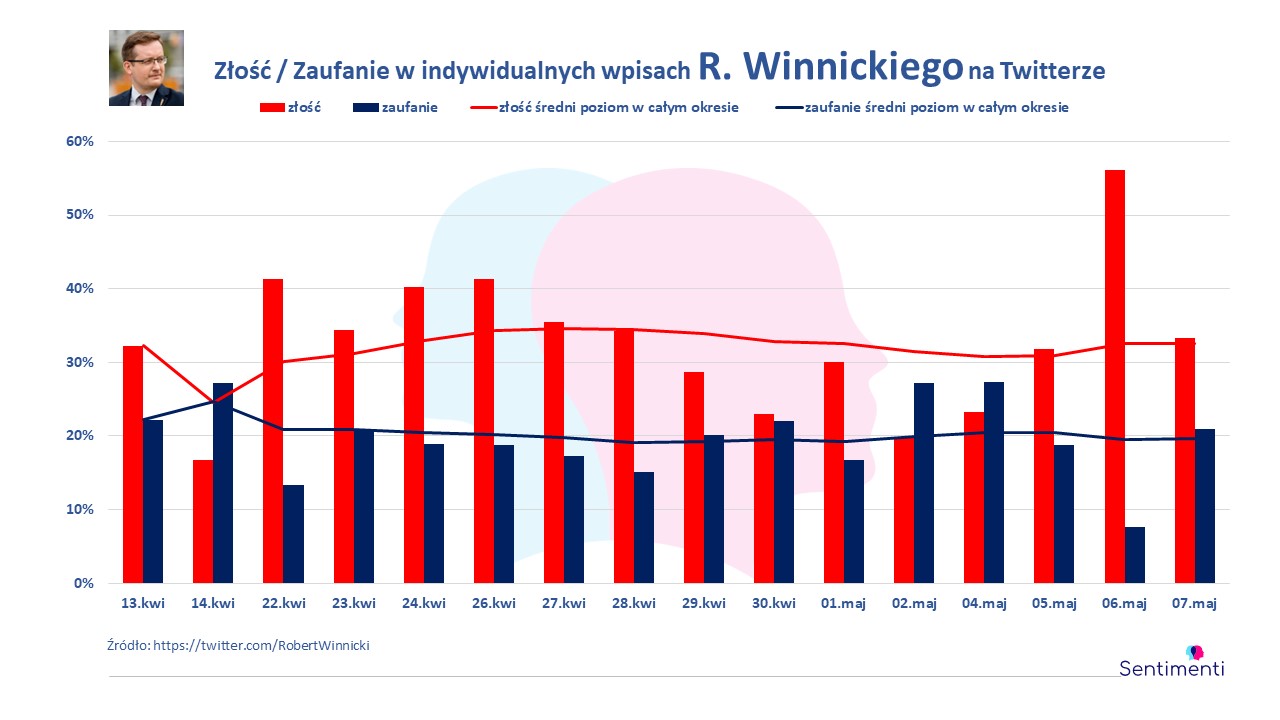
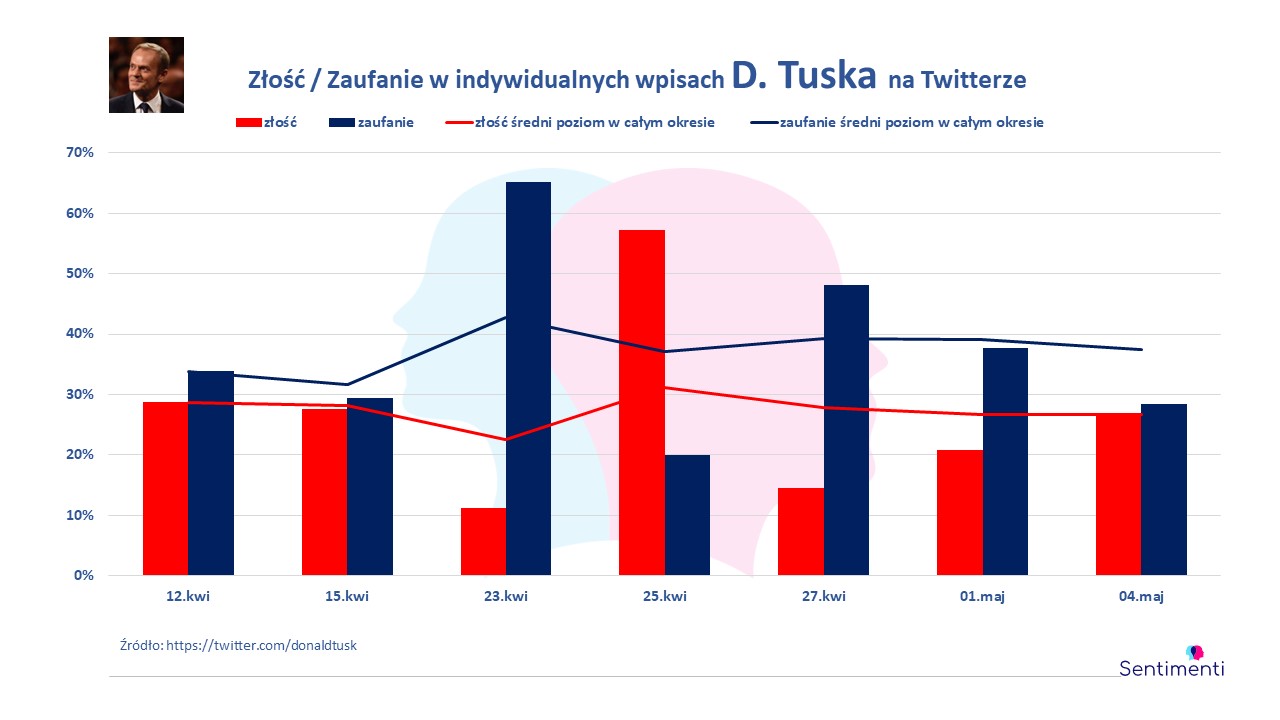
The activity of politicians on Twitter varied, but most importantly, the intensity of anger and trust that their posts evoked varied. The chart below shows collectively the values of the average intensity of the indicated emotions over the entire period under study.

Only the entries of Mateusz Morawiecki and Donald Tusk evoked higher trust over anger. Close to balanced were the entries of Wladyslaw Kosiniak-Kamysz, where anger and trust occurred at similar intensities. In the case of the remaining politicians, the emotion of anger far outweighed trust. We emphasize it was not the task of the analysis to assess the substantive content of the entries, but to measure the intensity of the emotions they evoked.
Emotions in leaders’ tweets vs. poll results
The results of polls are a product of both the substantive content of programs, speeches, publications, but also undoubtedly the emotions they evoke in the audience, i.e. potential voters. We asked ourselves whether it was possible to find a correlation between the emotions evoked by the tweets of political party leaders and the results of published polls. We based our research on surveys by the Institute for Market and Social Research IBRiS:
- of April 11, 2023. – poll for “Wydarzenia” and Polsat News and
- of Mai 17, 2023 r. – poll for Onet
In the case of the United Right, the May 17, 2023 poll recorded a 1.5% drop in support compared to the April 11, 2023 results. During this period (which the poll covered), an increase in the intensity of anger with a concomitant decrease in trust was noted in the entries of the group’s leaders. The reason for this – as the results of measuring the intensity of anger and trust showed – may have been the tweets published on Zbigniew Ziobra’s account.
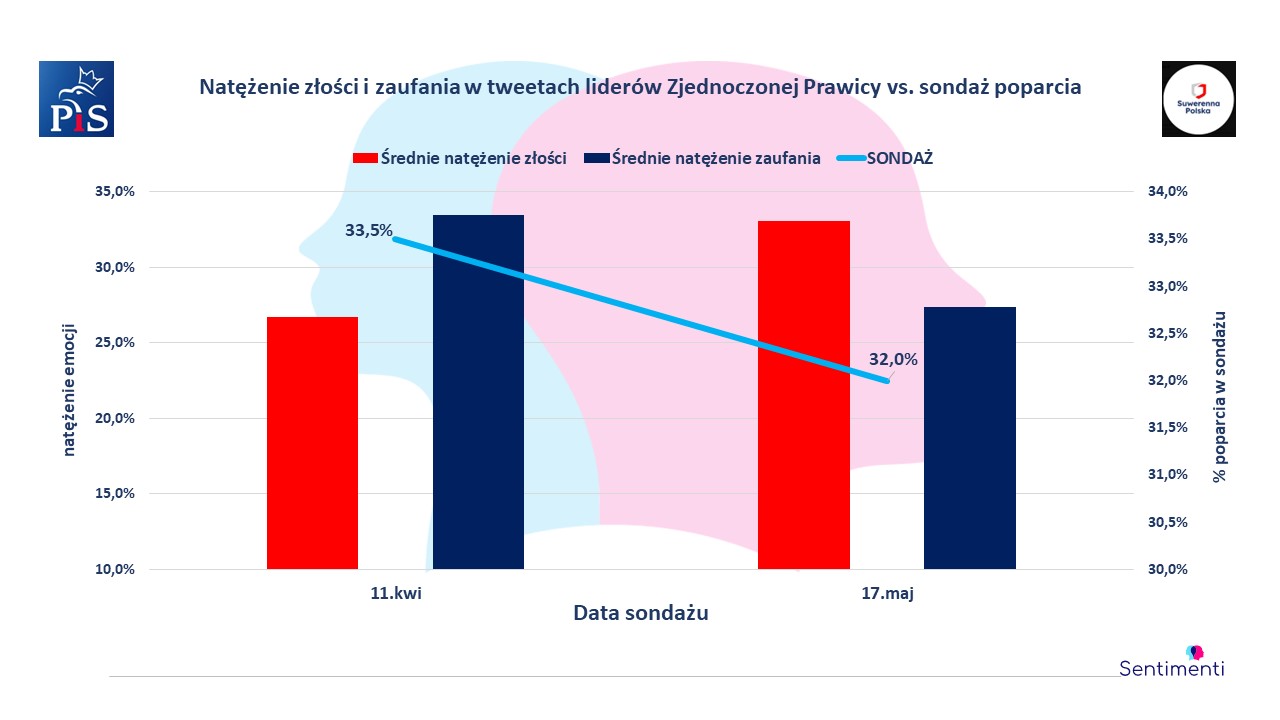
At the same time, the Civic Coalition recorded a nearly 2% increase in support. Whether and what impact Donald Tusk’s Twitter posts had on this situation is difficult to judge. However, it can be noted that the increase in poll support occurred in parallel with an increase in the intensity of emotions of trust in the statements published by the politician.
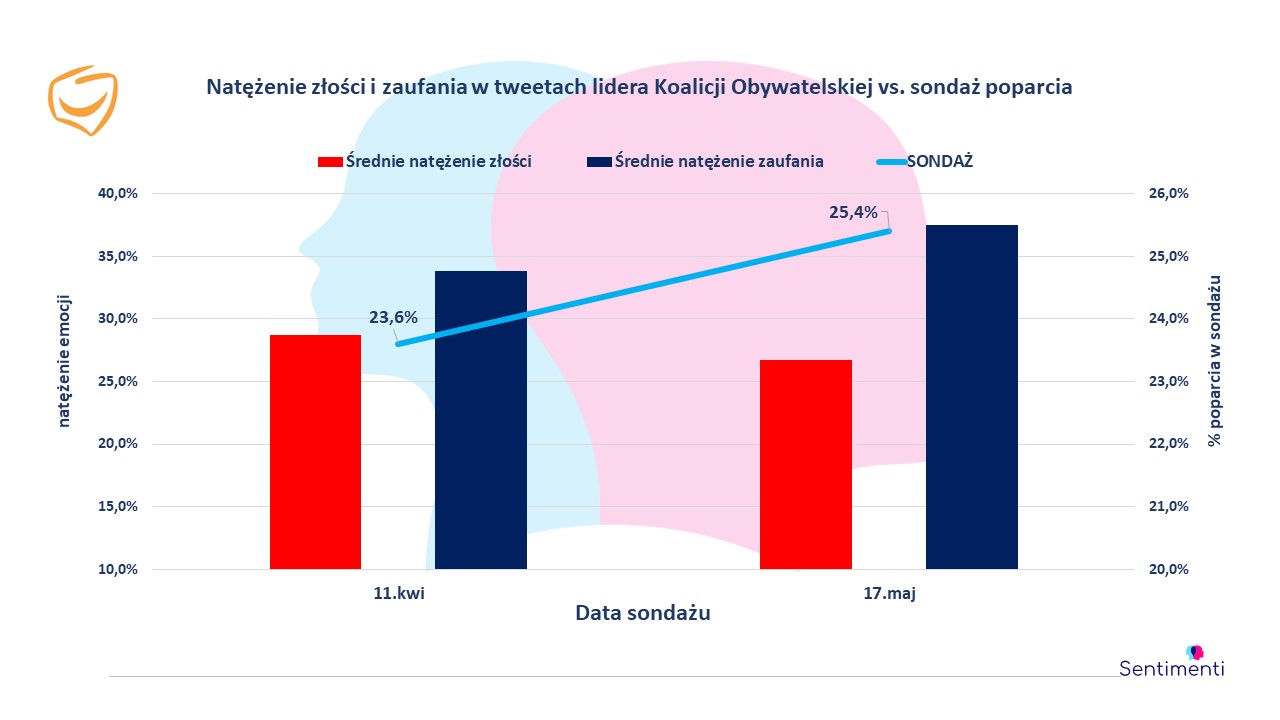
Looking at the emotions evoked by the tweets of Szymon Holownia and Wladyslaw Kosiniak-Kamysz, one can ask the question – is it thanks to the latter’s balanced statements that the PL2050 + PSL bloc recorded a slight increase in support? The question is legitimate, since in Szymon Holownia’s tweets one can notice a significant disproportion in the saturation of emotions of anger and confidence.
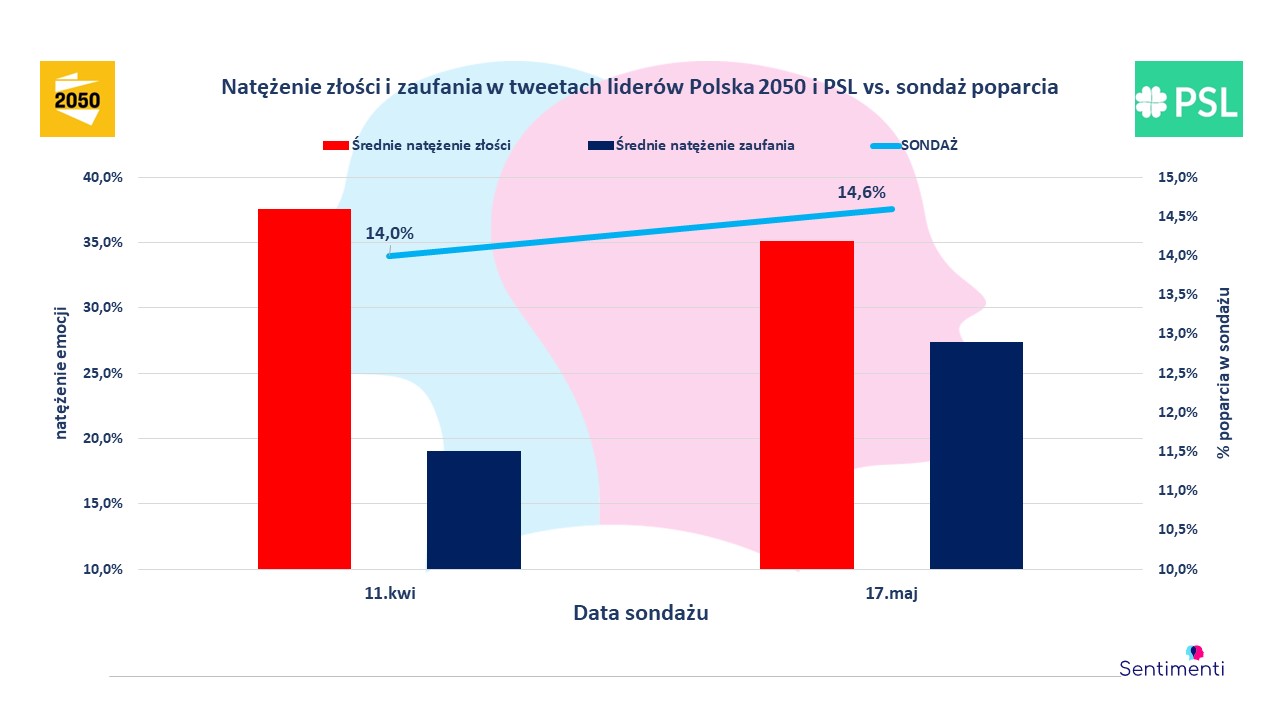
In the case of the Confederation and Left support polls, it can be noted that one of the factors in the lack of growth (Left) and decline in support (Confederation) in the May 17, 2023 poll may also have been a decline in audience trust in the content published on Twitter by the leaders of these formations.
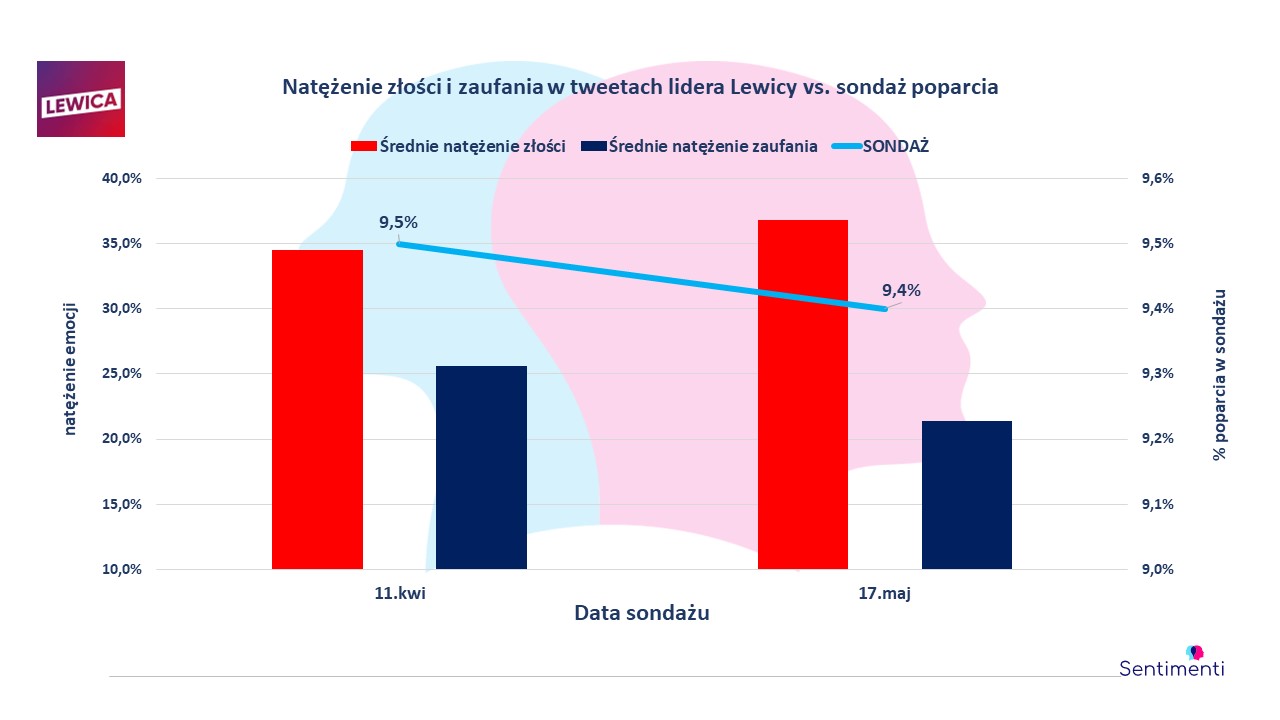
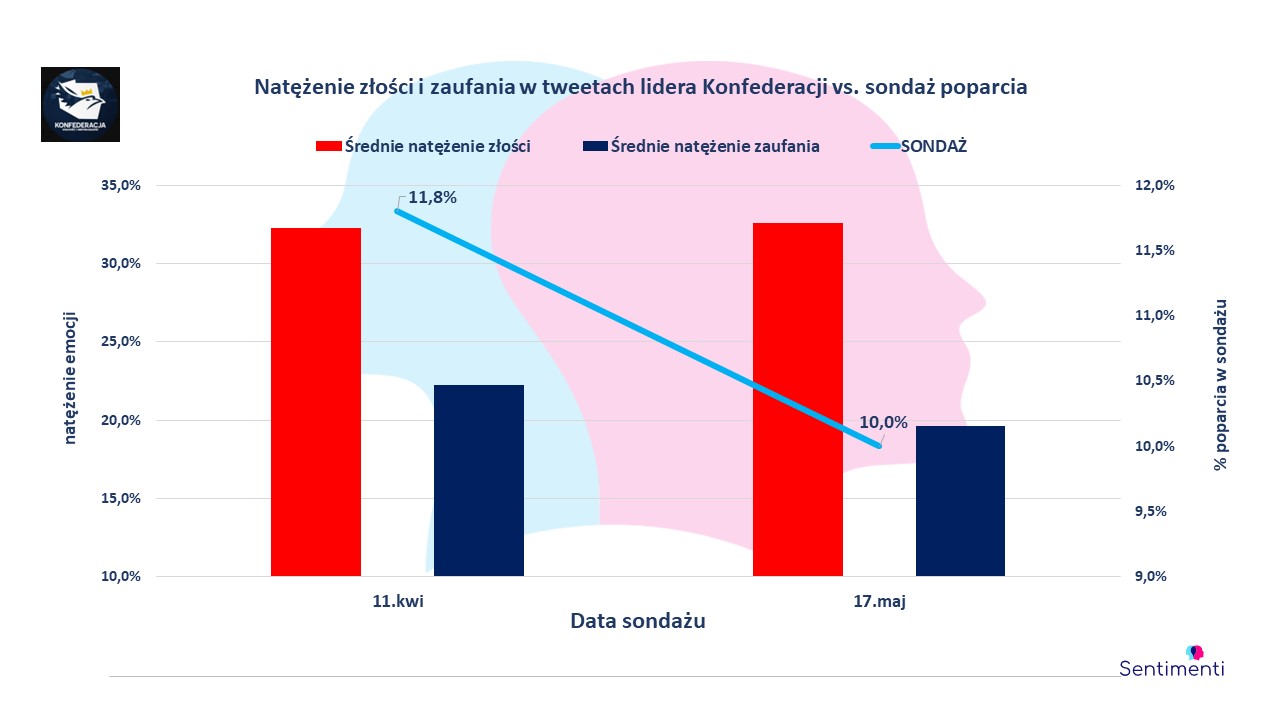
The emotions that parties and politicians arouse in voters are important
Observing the Polish political scene, it is hard to resist the impression that the “actors” on it use the simplest tools to influence the audience. So what if they can have the best political and social programs, etc. if they don’t know (after all, hardly anyone measures emotions):
- How to present your program, your vision in a way that inspires confidence,
- That one should control negative emotions (in this case, anger). Too strongly and too insistently politicians try to “play” on negative emotions.
Looking at the results of emotion analysis and survey results, we should conclude that it is worthwhile to study emotions, and just as worthwhile to bet on positive emotions. It is worth monitoring emotions in spontaneous statements, and not just conducting surveys, because in the latter the respondent thinks about his emotions, rather than expressing them.
Part of the political scene trusts Sentimenti. By commissioning it to conduct regular surveys, it seems to be doing well at it.